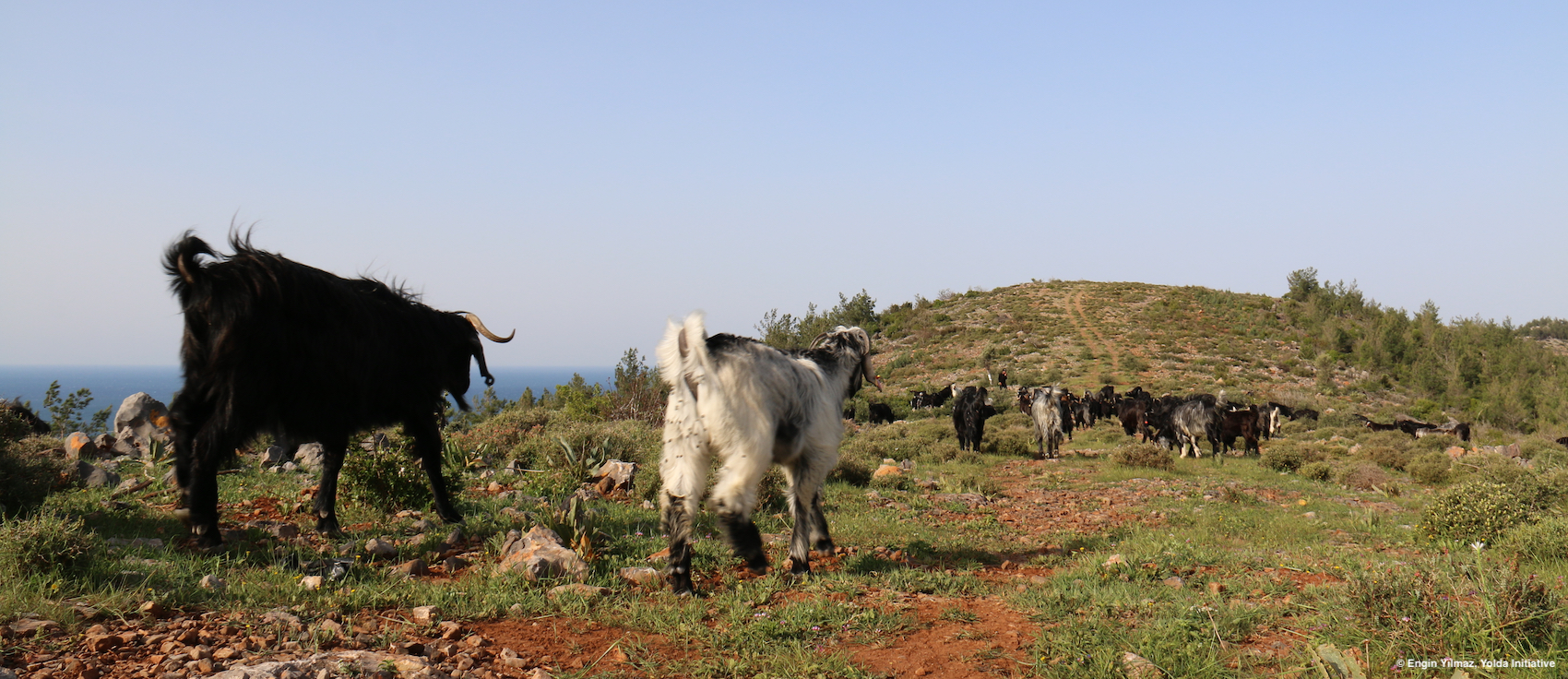Mobile pastoralism is a highly sustainable livestock management system that benefits both people and nature. In Spain, the relationship between transhumant shepherds and vultures exemplifies mutualism. Vultures scavenge livestock carcasses, preventing disease spread and reducing predator populations. However, veterinary Diclofenac endangers vultures. Yolda Initiative, with partners, campaigns to raise awareness and protect both pastoralism and vultures.

On the Move for Spring Migration!
Join us this spring as we follow the Bacak family of Sarıkeçili nomads on their migration from the Mediterranean coast to Central Anatolia. Over hundreds of kilometres, they move with the seasons, preserving nature and producing sustainable food. Follow their journey and stories on our social media channels!

A resolution by the UNEA
The UNEA 4 resolution on “Innovations in Sustainable Rangelands and Pastoralism” urges states to promote sustainable practices and traditional knowledge, support rangeland restoration, and raise awareness globally. It also backs the proposal for an International Year of Rangelands and Pastoralism, recognizing the vital role of mobile pastoralism in conservation efforts.

Transhumance and Spirituality in Italy
For thousands of years, mobile pastoralist communities have shaped landscapes, culture, and spirituality worldwide. In Italy, transhumance exemplifies the deep interaction between people and nature, influencing cultural diversity and spiritual practices. Father Mario Villani, during our interview, highlights the historical and cultural significance of transhumance in Europe.

On the Ground Support
Mobile pastoralists play a vital role in coexistence with carnivores, often impacted by habitat loss and prey scarcity. To address this, we introduced portable electric fences as a non-lethal mitigation measure against predation. In collaboration with Trashumancia y Naturaleza, trials in Turkey with the Koçbıyık family aim to reduce wolf-human conflict effectively.

One Square Meter
One Square Meter is a needle-felt sculpture representing mobile pastoralism’s impact on rangeland flora. As part of the Roads Less Travelled Global initiative, includes contributions from global communities. The Turkish edition, by Avukma Üreten Kadınlar Kooperatifi, premiered in İzmir on December 8-9, 2018, showcasing local plant diversity.


